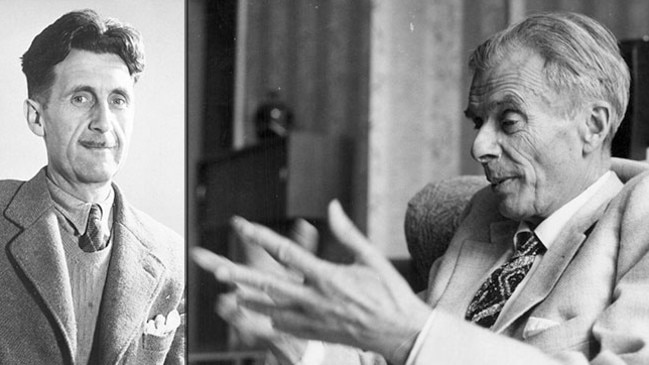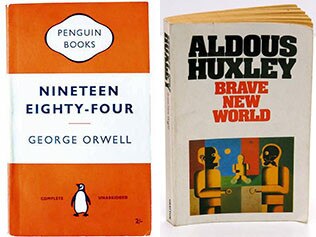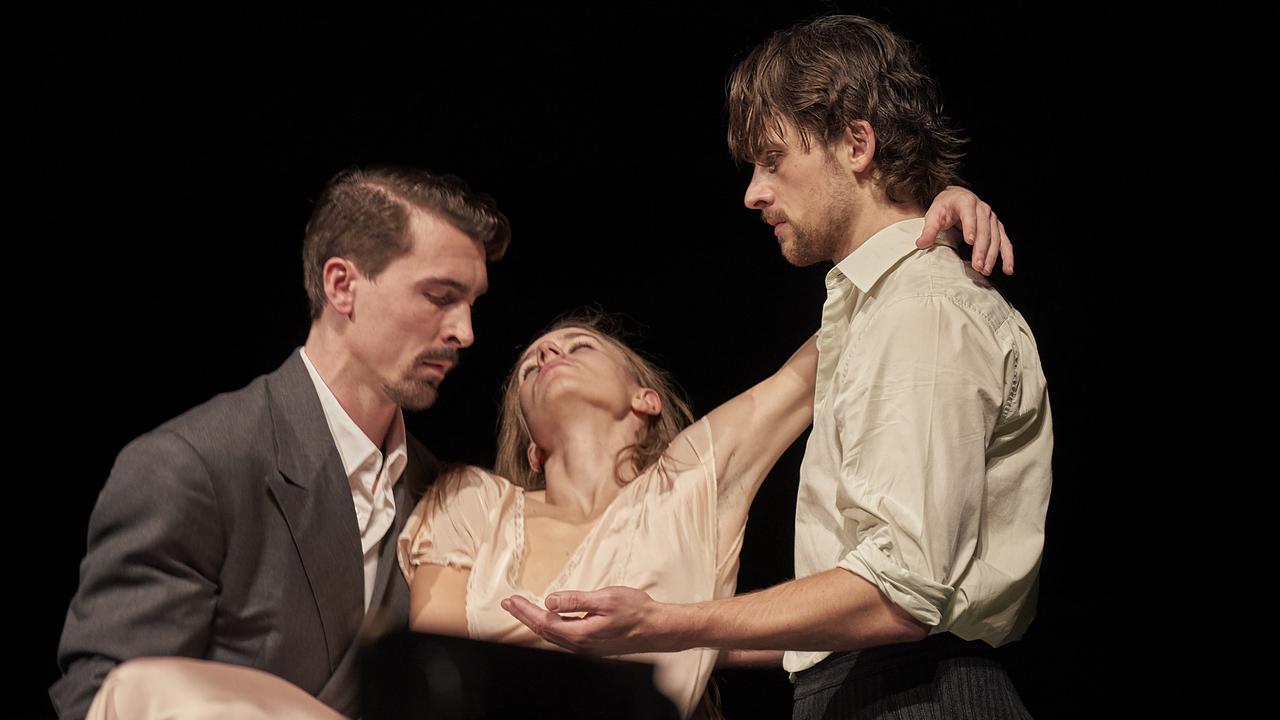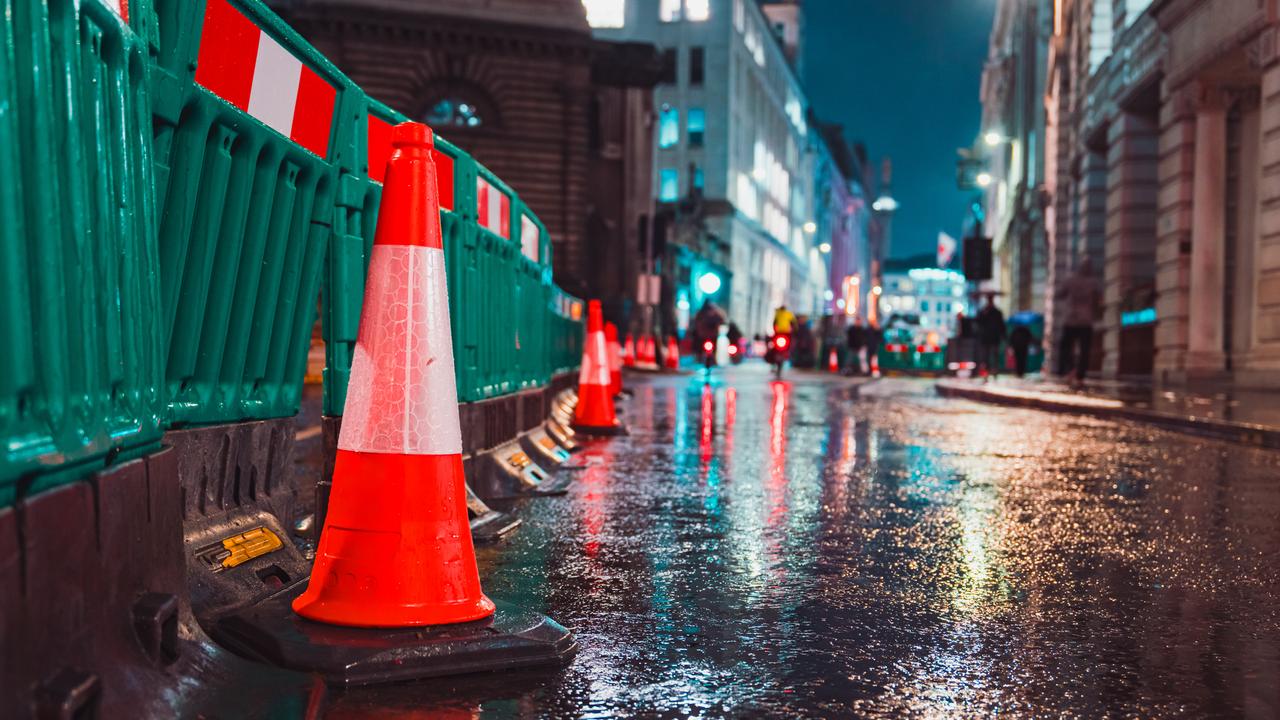Trump presidency sparks debate over George Orwell and Aldous Huxley
In light of the Trump ‘alternative facts’ era, which dystopian got it right - George Orwell or Aldous Huxley? GRAPHIC

“A squat grey building of only thirty-four stories. Over the main entrance the words, CENTRAL LONDON HATCHERY AND CONDITIONING CENTRE, and, in a shield, the World State’s motto, COMMUNITY, IDENTITY, STABILITY.”
“It was a bright cold day in April, and the clocks were striking thirteen. Winston Smith, his chin nuzzled into his breast in an effort to escape the vile wind, slipped quickly through the glass doors of Victory Mansions, though not quickly enough to prevent a swirl of gritty dust from entering along with him.”
I think we’d all guess, in a pub trivia night, say, which books start this way: Aldous Huxley’s Brave New World and George Orwell’s Nineteen Eighty-Four. As it happens, a lot more people know the answer today as both books have raced up the bestseller charts in the wake of Donald Trump becoming US President.
The sales boost has sparked a debate about who was right, Huxley in 1932 or Orwell in 1949. Both novels are set in a dystopian future. The dystopias are achieved differently — Orwell went for repression, poverty and the Junior Anti-Sex League; Huxley for technology, drugs, entertainment and sex — but the outcomes are much the same: the state is all-powerful.
It does seem the Trump “alternative facts” administration is fluent in Orwell’s Newspeak. The Nineteen Eighty-Four quote I’d like to pull out, though, is: “The Party told you to reject the evidence of your eyes and ears. It was their final, most essential command.” Trump was there for everyone’s eyes to see and ears to hear, and he was elected, not rejected.
Orwell created a Stalinist totalitarian world, the sort of state the West feared through the long Cold War. Yet, as Christopher Hitchens observed in 1999, Orwell’s “house of horrors” collapsed soon after the year in which he set the novel. The Berlin Wall came down, the Soviet Union separated. “Huxley,” he wrote, “rightly foresaw that any such regime could break because it could not bend.”

This does seem the prevailing view on Huxley, Orwell and Trump. There’s also a fascinating side debate on who we should be reading instead, such as Margaret Atwood, Philip K. Dick and Yevgeny Zamyatin. Don Watson, in The Monthly, singled out Herman Melville’s The Confidence-Man. Novelist Siddhartha Deb joined in with droll humour in The New York Times. The rush to read Nineteen Eighty-Four was “perversely groupthinkish”.
Deb names a 1985 book that has been receiving a lot of post-Trump attention: Neil Postman’s Amusing Ourselves to Death: Public Discourse in the Age of Show Business, in which he considers Huxley and Orwell’s views of the future. I haven’t read it but will soon.
The author’s son, novelist Andrew Postman, in The Guardian said, more or less, “my Dad nailed it”. His father thought Americans “mistakenly feared and obsessed” over Nineteen Eighty-Four (“an information-censoring, movement-restricting, individuality-emaciating state”) rather than Brave New World (“a technology-sedating, consumption-engorging, instant-gratifying bubble”).
Nineteen Eighty-Four is one of my favourite novels, but after reading a few paragraphs from Amusing Ourselves to Death I’m leaning to the Huxleyites in this debate: “What Orwell feared were those who would ban books. What Huxley feared was that there would be no reason to ban a book, for there would be no one who wanted to read one. Orwell feared those who would deprive us of information. Huxley feared those who would give us so much that we would be reduced to passivity and egoism. Orwell feared that the truth would be concealed from us. Huxley feared the truth would be drowned in a sea of irrelevance. Orwell feared we would become a captive culture. Huxley feared we would become a trivial culture.”




